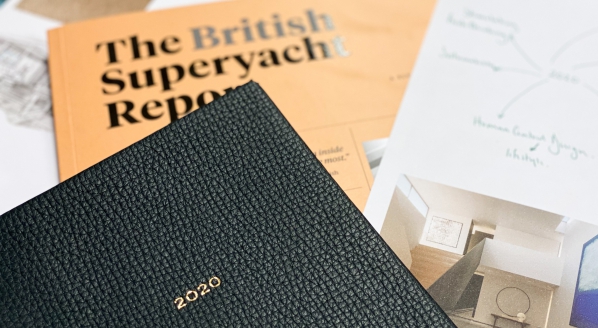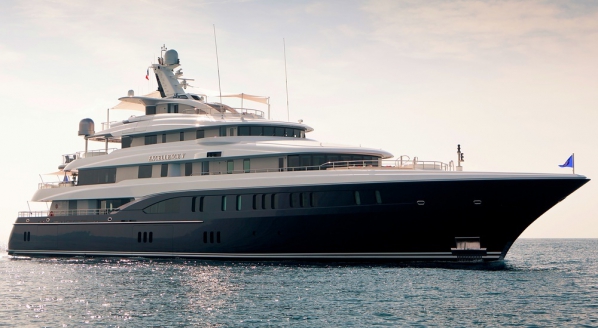Ensuring optimal resale value of your superyacht
SuperyachtNews spoke to Rory Boyle from Burgess, about the key resale considerations for owners…
There are various reasons why an owner may choose to depart with their superyacht. It could be that they have fallen on financially harder times and are no longer able to justify the expense, it may be that they no longer have the time to use the vessel or it may be that they are simply on the market for something larger. Whatever the reason may be, resale should be considered at the beginning at the point of purchase, not at the point of sale.
SuperyachtNews spoke to Rory Boyle, naval architect at Burgess, about the key resale considerations for owners constructing a new vessel.
“If a yacht has been personalised deeply to one person’s taste, it may be very difficult to find someone else who also likes the same things,” starts Boyle. “Generally, a beach theme or the light colours seen in the marine environment are preferred as this is the environment that clients generally seek when chartering a yacht as opposed to the rough wood of an alpine chalet or the hewn marble of a Middle Eastern palace.
“Further to this, the ability for an interior designer to produce a ‘timeless’ interior is key. If the finish or the materials don’t wear well, it will need to be updated regularly or at the very least after a sale. Interiors with expanses of high gloss, delicate finishes or inappropriate use of materials, white suede on hand rails or floors for example, will wear badly and will immediately be reflected in the price. Essentially a buyer will be looking for a yacht that requires the minimum expenditure to bring it to a standard or design that they like.”
Boyle states that the overall layout and finish of a vessel is paramount to the resale value and more important than the size of cabins for example: “cabin size is likely to effect final price less than the overall layout or finish(decoration) of guest accommodation. Location, circulation and layout are likely to be more important than overall floor area.”
“If a yacht has been personalised deeply to one person’s taste, it may be very difficult to find someone else who also likes the same things"
Another element that Boyle notes to be is important is the safety specifications of a vessel. “[Safety] is certainly going to cloud any purchase if it is, at the most, marginal, let alone sub-standard. The rules and regulations set up for the construction and operation of the superyacht fleet are designed to reduce risk as far as possible and adherence to these rules is designed to allow insurance companies to assess whether the yacht is inside or outside the insurable envelope. If a yacht cannot adhere to the regulations, the price will be substantially affected.”
In terms of how to establish the safety history of a vessel, Boyle suggests looking into the management history of the yacht, which he believes can tell the buyer a lot. “If she has always been maintained by a well-known and professional management company and has adhered to all the regulations with regular audits, risks will be substantially reduced.”
Additionally, a hot topic in the world of yachting – sustainability - may be something that particularly eco-conscious buyers may look for evidence of. And as a younger generation of superyacht owners emerge, with an increased interest in sustainable issues, the number of individuals that incorporate this into their thought process is only set to increase. However, gauging an accurate picture of the footprint of a vessel can be fairly difficult, Boyle explains: “smart buyers will certainly take the sustainability of a yacht into consideration but the availability in the market is likely to govern this.
“The custom nature of the yacht market means a huge range of operational scenarios and detailed information on the operational costs is seldom divulged. Whilst an environmentally aware owner can certainly look at the speed of a fast yacht and dismiss it as excessive, preferring slower more efficient cruising, they are less likely to be able to assess the insulation effectiveness, and thus, thermal efficiency of the yacht in its entirety. In short, there are limits to how far a buyer can quantify the efficiency of any single yacht so it is unlikely to be the foremost reason for choosing a yacht.”
While resale may be something that owners are reluctant to consider when constructing their dream vessel, ensuring that a vessel is built sustainably and to the correct safety specifications is something that most owners and yards should be considering as a matter of course.
Profile links
NEW: Sign up for SuperyachtNewsweek!
Get the latest weekly news, in-depth reports, intelligence, and strategic insights, delivered directly from The Superyacht Group's editors and market analysts.
Stay at the forefront of the superyacht industry with SuperyachtNewsweek
Click here to become part of The Superyacht Group community, and join us in our mission to make this industry accessible to all, and prosperous for the long-term. We are offering access to the superyacht industry’s most comprehensive and longstanding archive of business-critical information, as well as a comprehensive, real-time superyacht fleet database, for just £10 per month, because we are One Industry with One Mission. Sign up here.
Related news

The end of a brief affair with ostentation
Looking towards a utilitarian decade of superyacht design
Design

Environmental ego
Is environmental ego the next big motivator? My superyacht is greener than yours
Owner

Shipbuilding and yachting: what lies ahead?
The Superyacht Group announces partnership with The Economist’s Sea Tourism Summit 2020
Business
Related news
The end of a brief affair with ostentation
6 years ago
Environmental ego
6 years ago
Shipbuilding and yachting: what lies ahead?
6 years ago
NEW: Sign up for
SuperyachtNewsweek!
Get the latest weekly news, in-depth reports, intelligence, and strategic insights, delivered directly from The Superyacht Group's editors and market analysts.
Stay at the forefront of the superyacht industry with SuperyachtNewsweek




